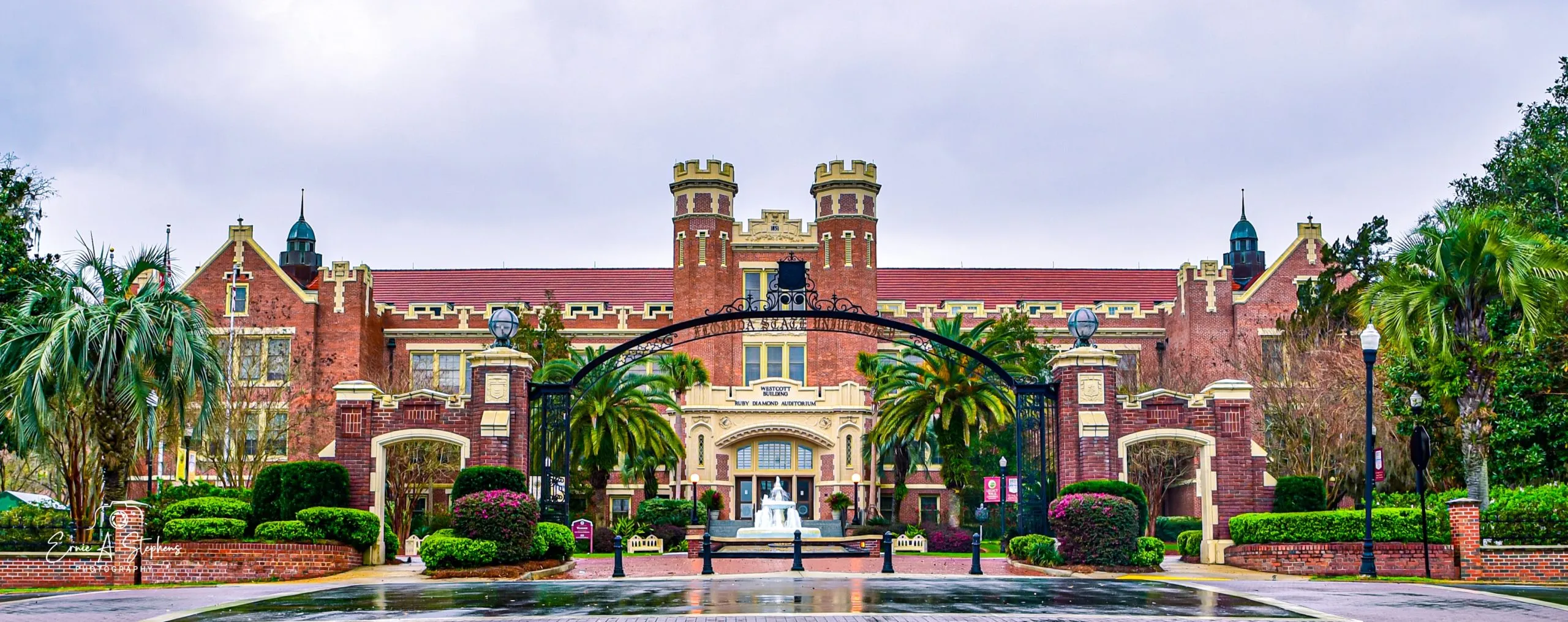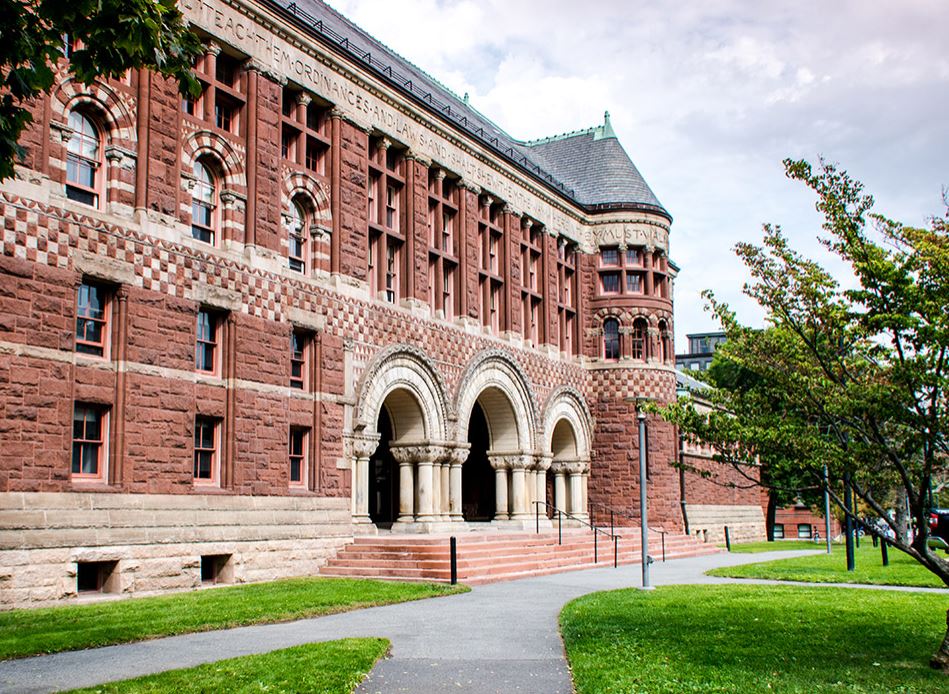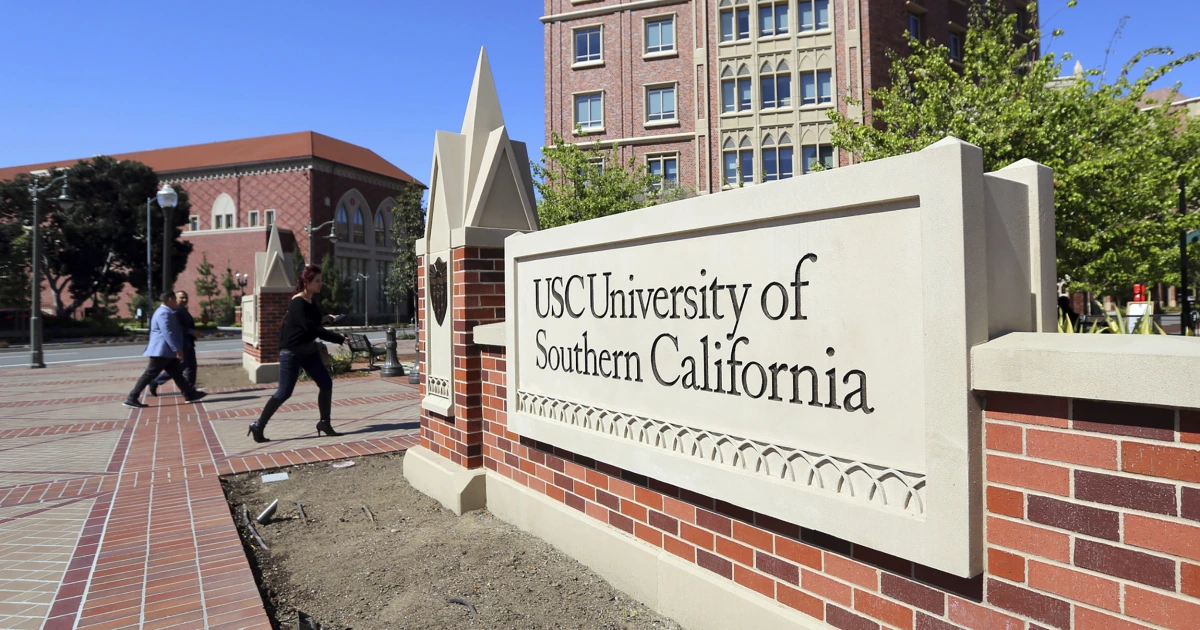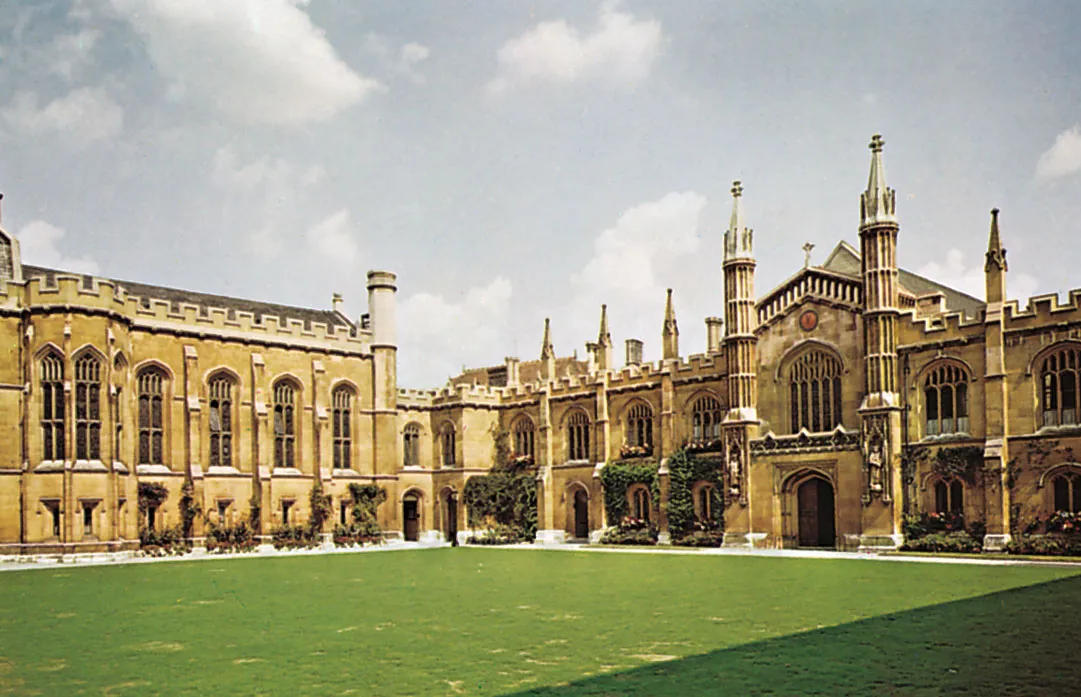Introduction
With a history dating back to 1851, Florida State University (FSU) is a nationally ranked public research university located in Tallahassee, Florida. As the oldest continuous site of higher education in Florida, FSU has grown into a powerhouse of academics, research, athletics and campus life. The university fosters excellence across diverse fields through its 16 colleges and 300-plus degree programs.
History of Florida State University
Florida State University originated as the Seminary West of the Suwanee River established by an act of the Florida legislature in 1851. Located on the site of a Civil War-era fort, the all-male seminary aimed to educate Florida students who were previously forced to travel out of state for higher education opportunities.
The institution expanded after the Civil War under Principal William G. Patten to become the West Florida Seminary. Female students were first admitted in 1879 as academic programs increased. By 1901, the state legislature designated West Florida Seminary as the Florida State College with broader land grant university status.
Major growth and transformation came under president Edward Conradi between 1909-1941. Enrollment increased five-fold as FSU added new colleges, departments and degree programs to develop into a modern university. In 1947, the school took on its present name Florida State University reflecting its expanded roles and stature within Florida’s higher education system.
In the second half of the 20th century, FSU increased research activity and funding in fields like physics, chemistry, psychology and the arts. Student participation also became more diverse with the 1956 integration of African American undergraduates. Since its 1851 founding, FSU has grown to become Florida’s premier graduate research institution committed to shaping future leaders.
Academics at Florida State
Florida State University comprises 16 colleges encompassing diverse academic disciplines and serving over 44,000 students. Undergraduate students make up around 32,000 enrollment choosing from over 120 majors across 78 bachelor’s degrees. At the graduate level, FSU enrolls over 8,500 students in 178 master’s, specialist, doctoral and professional programs.
Notable FSU colleges include Arts and Sciences, Business, Education, Law, Motion Picture Arts, Medicine, Nursing, Social Sciences & Public Policy and more. The university is especially well-regarded for programs in physics, chemistry, psychology, criminology, public administration, motion picture arts, creative writing and music performance among others.
U.S. News & World Report’s 2024 graduate school rankings placed FSU at 18th for Library and Information Studies, 25th for Criminology, 38th for Education, 39th for Nursing, 40th for Fine Arts and 46th for Public Affairs. This reflects FSU’s strength across diverse disciplines.
As Florida’s designated showcase university for the sciences and creativity, FSU makes significant contributions to research and innovation in areas like high energy physics, coastal science, materials science, psychology, conservation medicine and the arts. It is classified among the top research universities in the U.S. for total annual research expenditures exceeding $200 million.
The FSU faculty includes more than 1,600 distinguished scholars and researchers across academic fields. Prominent faculty honors include Nobel laureate in chemistry Sir Harold Kroto and Pulitzer Prize winners in fiction and music composition. FSU’s Magnet Lab directed by physicist Greg Boebinger represents the strongest magnet laboratory worldwide attracting top researchers.
Overall Florida State University provides exceptional breadth, depth and quality across undergraduate study, graduate/professional training and faculty research productivity spanning 16 colleges and numerous interdisciplinary centers and institutes.
Student Life at FSU
Florida State University has a student body of about 44,000 enrolled across its academic programs. Undergraduates make up around 75% of students, while nearly 10,000 graduate students pursue master’s and doctoral level study. The FSU student body represents all 50 U.S. states and over 130 countries worldwide.
Campus housing includes 12 single-student residence halls and 7 apartment-style halls managed by FSU’s Housing department. Around 6,000 students live on campus while others reside in private accommodations around Tallahassee. There are over 600 registered student organizations at FSU tailored to a wide spectrum of interests ranging from academic to social, cultural, athletic, religious and more.
FSU provides top-notch recreational facilities through the Seminole Fitness program encompassing fitness centers, pools, courts, playing fields and the High Ropes Challenge Course. Club sports include options like rugby, soccer, crew, frisbee and tennis among others. Intramural sports leagues offer competition between residence halls and other campus teams.
Beyond athletics and recreation, FSU students can get involved through diverse organizations like Student Government, Golden Tribe Lift volunteer program, Globe international cultural group, Student Alumni Association and the Congress of Graduate Students. FSU also has an active Greek Life system with over 40 fraternities and sororities.
Between classes, recreational sports, arts and organizations, FSU students find community and pursue their passions during their college years. The Tallahassee location provides a sunny climate plus entertainment, nightlife, cultural events and outdoor activities in a vibrant college town.
Prominent Alumni of FSU
With over 360,000 living alumni, Florida State University has produced graduates who have become leaders across public service, arts, science, business and more. Notable FSU alumni include:
– Politicians – U.S. Senator Bill Nelson, Florida Governor Ron DeSantis, Florida Congresswoman Gwen Graham
– Entertainers – Actors Faye Dunaway, Mykelti Williamson, NFL player Derrick Brooks
– Business Leaders – Patricia Elizondo (Xerox), Mark Hillis (SunTrust)
– Journalists – Lester Holt (NBC), Eyamée Dupasse (CNN)
– Writers – Bestselling authors Tim Dorsey and Michael Lister
– Scientific Leaders – NASA astronaut Winston Scott, Physicist Sir Harold Kroto – Nobel Laureate
As a large public university, FSU prepares graduates to succeed across diverse career fields in Florida, nationally and worldwide. Its alumni network totals over 360,000 people reflecting the university’s significant impact. FSU stands out for producing leaders making significant contributions through public and community service.
Athletics at Florida State
Florida State University athletics compete at the highest level of NCAA Division I as part of the Atlantic Coast Conference. Men’s and women’s sports collectively called the Seminoles have claimed over 20 team national championships and 250 ACC titles across FSU history.
The most prominent FSU sport is football which claims three national titles including the 2013 championship. Under head coach Mike Norvell, the Seminoles play home games at Doak Campbell Stadium which seats over 79,000 fans. FSU football frequently contends for ACC championships and top 25 national rankings.
Other varsity sports at Florida State include basketball, baseball, softball, soccer, volleyball, swimming, golf and more offered for both men and women. The 128,000 square foot Tucker Center hosts basketball as well as concerts and events. The JoAnne Graf Field at the Seminole Softball Complex is considered one of the nation’s finest softball stadiums.
Beyond its athletics facilities, FSU is also known for its passionate fans and traditions. The Marching Chiefs represent the university through their high-spirited performances during football games and beyond. Since 1978, Osceola and Renegade are featured during games in a ceremonial planting of a flaming spear at midfield said to ‘bless’ the team before battle.
Through its championship-caliber athletic programs and renowned traditions, FSU’s school spirit brings the campus community together and extends the university’s brand nationwide.
Campus and Facilities
Florida State University’s main campus is located on nearly 500 acres in Tallahassee, Florida. The campus includes over 600 buildings blending historic Collegiate Gothic style architecture with modern facilities. Though an urban campus, outdoor green spaces provide a pleasant natural environment for students.
Doak Campbell Stadium represents FSU’s largest and most iconic structure on campus as home to the football team. The stadium is named after FSU President Doak Campbell who oversaw the university’s expansion in the mid-20th century. Other campus athletic facilities include the Tucker Center, Dick Howser Baseball Stadium, Seminole Soccer Complex and the Aquatic Center.
Major academic buildings include Dodd Hall, home of the College of Communication and Information; the Rovetta Business Building; HCB Classroom Building for Health Professions; and the Maguire Medical Building housing College of Medicine administration. The Strozier Library constitutes FSU’s main university library with over 3 million volumes.
Arts venues include the Fine Arts Building, Richard G. Fallon Theatre, and the Housewright Music Building containing the Ruby Diamond Concert Hall. The Oglesby Union provides a hub for student life, while the Heritage Museum and Mission San Luis spotlight Tallahassee history and culture. From research centers to food options to recreational amenities, FSU’s campus has everything students need daily.
Global Reach and Discovery
As a major public research university, Florida State advances global research, discovery and impact across disciplines. In 2021, FSU received over $218 million in research grants supporting innovation in areas from physics and chemistry to psychology, climate science, health, education and more.
Examples of global research initiatives at FSU include the National High Magnetic Field Laboratory housing the world’s strongest magnet used by researchers worldwide. The FSU Coastal and Marine Laboratory studies environmental and marine ecology of Florida’s coastline and beyond. The Institute for Family Violence Studies informs policy on domestic violence issues affecting society.
FSU’s Center for Global Engagement promotes meaningful university and student connections worldwide. In terms of research collaboration, FSU maintains partnership agreements with over 110 universities in Central/South America, the Caribbean, Europe and China. FSU Study Abroad programs expand student opportunities for global learning and exchange across six continents.
At Florida State University, a robust research agenda focused on solving society’s problems combines with global connections advancing learning for students and cooperation between scholars internationally. This amplifies FSU’s progress and impact not just in Florida but on the world stage.
Traditions and Campus Culture
Beyond its strong academic and research focus, student life at Florida State University also encompasses many cherished traditions and a vibrant campus culture. FSU students find diverse ways to engage creatively, socially and athletically during their college experience.
As an arts campus, FSU celebrates creativity through events like the Opening Nights Performing Arts series, Museum of Fine Arts exhibits, Festival of New Music and more. For over 50 years, Club Downunder has presented concerts showcasing up and coming musicians. FSU’s Marching Chiefs band represents another facet of arts and campus spirit.
Homecoming, Family Weekend and the annual PowWow welcome visitors for fun traditions. Move-in and Football Fridays kick off each new year with energy and tailgates. Class ring ceremonies and the Unconquered statue honor student achievement. The Sod Cemetery buried stadium sod for key football wins, while the Honor Walk recognizes academic excellence.
FSU’s campus culture values diversity, sustainability and community engagement alongside academic and creative expression. A sunny, friendly climate pervades the campus where students pursue growth and celebrate milestones together. From football games to unique Seminole traditions, FSU’s campus life builds lasting memories.
The Future of Florida State University
As Florida’s oldest continuous university, Florida State has built a legacy of excellence over more than 165 years since its 1851 founding. What does the future hold as FSU enters its third century? The university will continue its drive toward greater impact locally and globally across research, academics, medicine, creativity and athletics.
Major priorities include expanding FSU’s research prominence to exceed $300 million in annual funding over the next decade. Growing innovative graduate study options will build human capital. Online education and expanded STEM facilities will broaden access and opportunity. Raising over $1 billion through the upcoming capital campaign will propel FSU’s progress into its third century.
FSU’s next horizon includes harnessing data and technology to enhance education and discovery. Fortifying cross-disciplinary collaboration will help solve grand challenges facing Florida and the world related to health, climate, food security, economy and more. FSU will further strengthen its national reputation as a top-tier research university fueling prosperity across the state and country.
By pursuing excellence, enhancing access and focusing knowledge on societal needs, Florida State University will continue being a cornerstone institution building Florida’s future. The university cultivated the Sunshine State’s potential for over 165 years and remains vital to its ascension going forward. Go ‘Noles!
Conclusion
For over 165 years, Florida State University has served as a leading public research institution dedicated to academic excellence, discovery, the creative arts, championship athletics and preparing talented graduates to shape the future. Through its 16 colleges and diverse degree programs, FSU fosters opportunity across fields from physics and health to business, law, education and more.
As Florida’s designated ‘showcase university’, FSU represents a world-class destination for education, research and campus life. Nationally ranked academics, $200 million in annual research spending, NCAA Division I athletics and cherished traditions reflect FSU’s expanding impact under its mission as a modern land-grant university.
From its beginnings as a seminary in 1851, FSU has grown into an innovative institution advancing Florida’s prosperity and potential. Through continued pursuit of excellence across endeavors, Florida State University brightens the Sunshine State’s future while making global contributions to knowledge and progress.



